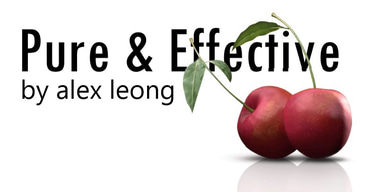The Stress Express: All Aboard the Fight or Flight Train
The Modern-Day Stress Monster
In today’s fast-paced, instant-gratification society, stress isn’t just a rare visitor—it’s a regular guest. Expectations aren’t met, gratification isn’t instant, and we’re constantly bombarded by emotions, overthinking, boredom, fear, worry, and anxiety. Our bodies get so used to hitting the panic button that it becomes the new normal, making it incredibly hard to turn off. This constant stress can start subtly, but over time, it can become chronic, sneaking up on you because it feels “normal.”
When stress kicks in, your body releases a flood of hormones, like cortisol, to help you cope. These hormones affect everything from your emotions and blood pressure to your blood sugar levels. Cortisol even pulls double duty by giving you that morning wake-up call and helping you wind down at night—it’s like your body’s built-in alarm clock! But when stress becomes chronic, this hormonal surge can throw your entire system out of balance.
And while your brain is trying to keep up with this relentless pace, your gut and liver are feeling the strain, too. Stress disrupts the delicate community of good bacteria in your digestive system, like an unruly crowd crashing a well-organized event. It throws off the balance, leaving your gut’s inner ecosystem in disarray. At the same time, your liver—the body’s detox powerhouse—is working overtime to process the physical and chemical stressors we’re exposed to daily, from polluted air and water to contaminated food and medications.
Where Does Stress Come From?
Stress isn’t just about emotional overwhelm or external pressures like work deadlines. It’s also fueled by environmental and social factors. Noise pollution in schools, markets, factories, construction sites, and crowded streets, along with the constant nagging of a partner or parents, can quietly fuel chronic stress. Even the air we breathe, the water we drink, and the food we eat can introduce toxins that stress our liver and other organs.
But modern life brings its own unique set of stressors. Sexual harassment, bullying, and high-competitive environments—whether at work, school, or even in social circles—can create a constant undercurrent of tension. These experiences don’t just affect your mental health; they can trigger the same fight-or-flight response as physical threats, keeping your body in a state of heightened alert.
Then there are the silent stressors—things we don’t always notice but add to the load. Looming deadlines, nagging worries, or the cumulative effect of environmental and social pressures often seep into your system unnoticed. Add hidden dangers like adulteration and contamination of food, food supplements, or water, and the burden grows heavier. These silent invaders disrupt your body’s natural balance, tipping the scales of your stress response even further.
The Silent Evolution of Stress
We often hear that acute stress is short-lived and not as harmful, while chronic stress is the bad guy. But the line between the two isn’t always clear. Acute stress can be positive or negative—it’s the rush you feel before a big presentation (positive) or the panic you experience when you narrowly avoid a car accident (negative). These short bursts of stress can sharpen your focus and even help you perform under pressure.
On the other hand, chronic stress can also have two faces. In small doses, it might push you to adapt and grow, like training for a marathon or working toward a long-term goal (positive). But when it becomes overwhelming—like constant financial worries, a toxic work environment, or ongoing relationship struggles (negative)—it can take a serious toll on your body and mind.
The key difference between acute and chronic stress lies in recovery. Acute stress, whether positive or negative, gives your body a chance to bounce back after the stressor passes. But when acute stress happens too frequently—like back-to-back deadlines, overlapping projects, or a relentless high-pressure lifestyle—it leaves no space for recovery. Over time, this continuous strain can turn acute stress into chronic stress, keeping your body stuck in overdrive.
Finding the Balance
Stress isn’t the villain here. It’s a natural response meant to protect you, sharpening your focus and giving you the energy to tackle challenges. But like anything, balance is key. Too much stress, too frequently, can lead to burnout, while too little can leave you unmotivated and stagnant. The goal is to find that sweet spot where your body can handle stress without it becoming overwhelming.
This balance isn’t about eliminating stress entirely—it’s about managing it in a way that supports your overall well-being. Think of it like finding flow, that state where you’re fully immersed in an activity, energized but not overwhelmed. In flow, stress becomes a driving force, helping you perform at your best without tipping into exhaustion.
By understanding the sources of stress, addressing poor lifestyle habits, and incorporating tools like adaptogens, you can create a resilient system that thrives under pressure. It’s about working with your body, not against it, to build a foundation of strength, vitality, and flow.
Return to:


Poor Lifestyle Habits: The Plot Thickens
Let’s not forget about our poor lifestyle habits, which can amplify stress and inflammation like uninvited guests overstaying their welcome. Skipping meals, not getting enough sleep, and binge-watching TV instead of exercising are just a few examples of how we unknowingly add fuel to the stress fire.
When you skip meals, your blood sugar levels drop, leaving you irritable and fatigued—a perfect recipe for heightened stress. Poor sleep, on the other hand, doesn’t just leave you groggy; it disrupts your body’s ability to regulate cortisol, the stress hormone, making it harder to cope with daily pressures. And while binge-watching your favorite show might feel like a way to unwind, it often replaces physical activity, which is a proven stress reliever.
These habits don’t just affect your mood—they take a toll on your body, too. Lack of exercise and poor sleep can weaken your immune system, while irregular eating patterns can disrupt your gut health, adding to the chaos already caused by stress. Over time, this can even lead to cellular stress, where your cells are overwhelmed by free radicals—unstable molecules that damage cells and contribute to aging and chronic diseases.
When oxidative stress teams up with chronic inflammation, it’s a double whammy for your body. Just like stress, inflammation isn’t the bad guy—it serves a purpose, helping your body heal. But when inflammation overstays its welcome, it becomes chronic, adding fuel to the fire and making things worse.
Adaptogens: The Stagnancy Breakers
Stress, when left unchecked, can lead to stagnancy—a state where your body’s natural systems feel stuck, unable to adapt or recover. Imagine a river that once flowed freely, carrying nutrients and oxygen to every corner of its ecosystem. But when debris builds up and the water stops moving, the river becomes stagnant. Life within it struggles to survive, and the once-thriving ecosystem falls out of balance.
Similarly, when stress overwhelms your body, it can create a kind of internal stagnancy. This imbalance can manifest as fatigue, brain fog, gut issues, or even a weakened immune system. Enter adaptogens, like Cistanche tubulosa (desert ginseng) and Siberian ginseng (Eleuthero), the unsung heroes of the botanical world. These powerful plants are more than just stress adaptogens (supporting your body’s natural ability to handle stress); they’re also potent anti-inflammatory agents and antioxidants that help your body regain its equilibrium. They act as stabilizers, protecting your body from the damage caused by too much—or too little—stress.
Take premature aging, for instance: a telltale sign of excessive free radicals and chronic inflammation working hand in hand. Cistanche tackles premature aging effectively, helping your body stay youthful and vibrant. And the best part? Incorporating this adaptogen into your routine to restore balance is simple with my 2-step Approach.




Stress is like an old friend that just can’t take a hint. It shows up uninvited and makes itself at home. But why do we get stressed in the first place? It all starts with the fight-or-flight response system—an ancient survival mechanism designed to prepare our bodies to either stand our ground and fight or hightail it out of danger.
When stress (or fear) kicks in, the brain and the central nervous system (CNS) get the memo and send out a full-body alert. Your heart races, your muscles tense, and your liver ramps up energy production—everything is prepped for action. As a bonus, your inflammatory and immune responses are also activated, ready to deal with any potential injury or infection.
This system works brilliantly in short bursts, like when you need to dodge a speeding car or meet a tight deadline. But in today’s world, where stress is less about lions and more about looming bills, endless to-do lists, and environmental pressures, the fight-or-flight response can get stuck in overdrive. And when that happens, the very system designed to protect us can start to cause harm.




